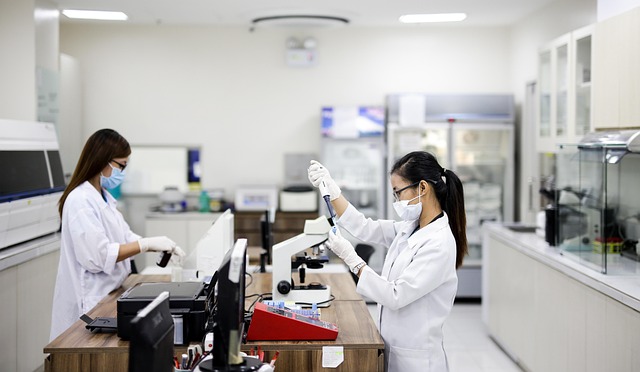Translation services for UK Medical Case Studies are essential for effective knowledge dissemination in healthcare, ensuring accuracy, precision, and cultural sensitivity in complex medical terminologies. These services facilitate global collaboration by enabling access to cutting-edge medical literature, enhancing patient safety through minimized errors, and adhering to stringent quality standards. When selecting a translator, focus on specialized medical terminology knowledge, experience with case studies, and robust quality assurance processes, ensuring accessible and trustworthy medical documentation for improved patient care and research standards worldwide.
“In the realm of healthcare, precision in communication is paramount. When it comes to medical case studies, accurate translation plays a vital role in ensuring patient care and research integrity. With diverse linguistic needs in the UK’s bustling healthcare landscape, understanding the importance of qualified translation services is crucial.
This article explores the significance of high-quality language solutions for UK medical case studies, delving into the benefits of professional translation, key considerations when choosing a translator, and how it enhances overall research and patient outcomes.”
- Understanding the Importance of Accurate Translation in Medical Case Studies
- The Role of Professional Translation Services for UK Healthcare Literature
- Key Considerations when Choosing a Medical Translator for Case Study Projects
- Enhancing Patient Care and Research Integrity through Quality Language Solutions
Understanding the Importance of Accurate Translation in Medical Case Studies

In the realm of medical research and case studies, accurate translation plays a pivotal role in ensuring knowledge is disseminated effectively and safely. When it comes to UK medical case studies, engaging professional translation services is essential to preserve integrity and precision. These studies often involve complex terminology, rare medical conditions, and nuanced language, requiring translators with extensive medical expertise.
Translation services for UK Medical Case Studies should not only focus on grammatical correctness but also cultural sensitivity. Medical terms must be translated accurately to maintain the intended meaning without misinterpretation, which could lead to potentially harmful consequences. Professional translators skilled in the field ensure that technical details are conveyed precisely, facilitating global collaboration and access to cutting-edge medical knowledge.
The Role of Professional Translation Services for UK Healthcare Literature

In the dynamic landscape of UK healthcare, clear and precise communication is paramount. This is especially true for medical case studies, where accurate documentation is crucial for patient care, research, and regulatory compliance. Professional translation services play a vital role in ensuring that medical literature, including case studies, is accessible and understandable across diverse linguistic backgrounds. These services go beyond simple word-for-word translations; they involve specialized healthcare translators who possess both linguistic expertise and clinical knowledge.
Translation services for UK Medical Case Studies must adhere to stringent quality standards. Accurate translation ensures that medical terminology, complex procedures, and subtle cultural nuances are conveyed accurately in the target language. This not only facilitates effective communication among healthcare professionals but also enhances patient safety by minimizing potential errors arising from miscommunication. Moreover, professional translators stay updated with regional variations in medical practices and terminologies, ensuring that the translated case studies remain relevant and precise.
Key Considerations when Choosing a Medical Translator for Case Study Projects

When selecting a translator for medical case study projects in the UK, several key factors come into play. Firstly, ensure they have expertise in the specific medical field your case study pertains to—translators with knowledge of technical terminology and jargon are invaluable. Look for professionals who understand the nuances of medical documentation and can accurately convey complex information in the target language.
Secondly, consider their experience with case studies or similar documents. A translator familiar with this format will know how to structure the translation, maintaining clarity and coherence while adhering to any specific guidelines or formatting requirements. Reputable translation services for UK medical case studies should also offer quality assurance processes, ensuring accuracy and consistency in their output.
Enhancing Patient Care and Research Integrity through Quality Language Solutions

In the dynamic landscape of healthcare, effective communication is a cornerstone of enhancing patient care and fostering robust research integrity. This is particularly evident when dealing with medical case studies, which often require intricate translations to ensure accurate understanding across diverse linguistic barriers. Translation services for UK Medical Case Studies play a pivotal role in this process, enabling healthcare professionals and researchers to share knowledge and insights seamlessly.
High-quality language solutions are essential to maintaining the precision and integrity of medical information. Professional translators with expertise in the healthcare domain can navigate complex terminology, cultural nuances, and regulatory requirements to deliver translations that meet stringent standards. This not only facilitates international collaboration but also ensures patient safety by providing accessible and reliable medical literature for healthcare providers worldwide.
In conclusion, accurate medical translation plays a pivotal role in enhancing patient care, research integrity, and effective communication within the UK healthcare sector. When dealing with case studies, enlisting professional translation services is essential to ensure precise and culturally sensitive interpretations. By carefully considering key factors like expertise, quality assurance, and compliance with medical terminology, healthcare professionals can choose the right translator for their projects. Thus, investment in high-quality language solutions facilitates better patient understanding, improved research outcomes, and more effective navigation of a diverse healthcare landscape in the UK.
